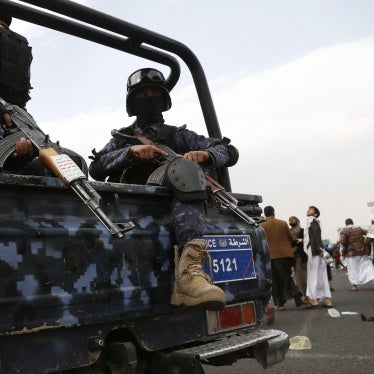Geneva, Switzerland
Thank you for giving me the floor, Mr. President.
There is a cease-fire in Lebanon, but civilians are being killed and injured every day. Cluster munitions are the main culprit. The realities in Lebanon should inform every session of this meeting, every statement, every consideration. States should not be using inaccurate and unreliable cluster munitions. Not under any circumstances.
As once again shown in Lebanon, cluster munitions pose unacceptable dangers to civilians at the time of attack because of their wide dispersal pattern, and they also pose unacceptable long-term risks to civilians due to the large number of hazardous duds. Once again, it appears inevitable that, when employed, cluster munitions are used in ways that are likely to violate international humanitarian law.
Since the last CCW Review Conference, cluster munitions have been used extensively in two conflicts. First, in Iraq in 2003 by U.S. and U.K. forces, where cluster munitions caused more civilian casualties than any other weapon system, apart from small arms fire. Human Rights Watch documented numerous attacks on populated areas, numerous attacks that ran afoul of international humanitarian law. Cluster munition duds are still causing civilian casualties in Iraq.
The second conflict is Lebanon. We are still collecting information, but it is clear that Israel made widespread use of a variety of ground and air-delivered cluster munitions, especially in the last days before the cease-fire. The United Nations has already identified more than 300 individual cluster munition strike sites. Many towns and villages were hit, many directly in the center of town. Predictably, there have been numerous civilian casualties.
For the last five years, since the last Review Conference, Human Rights Watch and other NGOs in the Cluster Munition Coalition have been pleading with CCW States Parties to focus on the conventional weapon that clearly constitutes the greatest risk to civilian populations. Some progress has been made through CCW discussions on cluster munitions, but not nearly enough. There has been more progress at the national level, most notably this year with Belgium banning cluster munitions and Norway announcing a moratorium.
Norway earlier spoke of the "urgent need" for an international instrument on cluster munitions. From the perspective of Human Rights Watch and the Cluster Munition Coalition, CCW States Parties must agree to a negotiating mandate on cluster munitions in November. Anything less-such as continuing the discussion mandate-will not be seen as sufficient. States Parties have been talking for five years, while the weapon takes its toll in Iraq, and Lebanon, and elsewhere.
If States Parties cannot agree to a negotiating mandate in November, they will have demonstrated the inability of the CCW to deal seriously with the humanitarian problem of cluster munitions. It will be time to seek solutions elsewhere.
Thank you.






